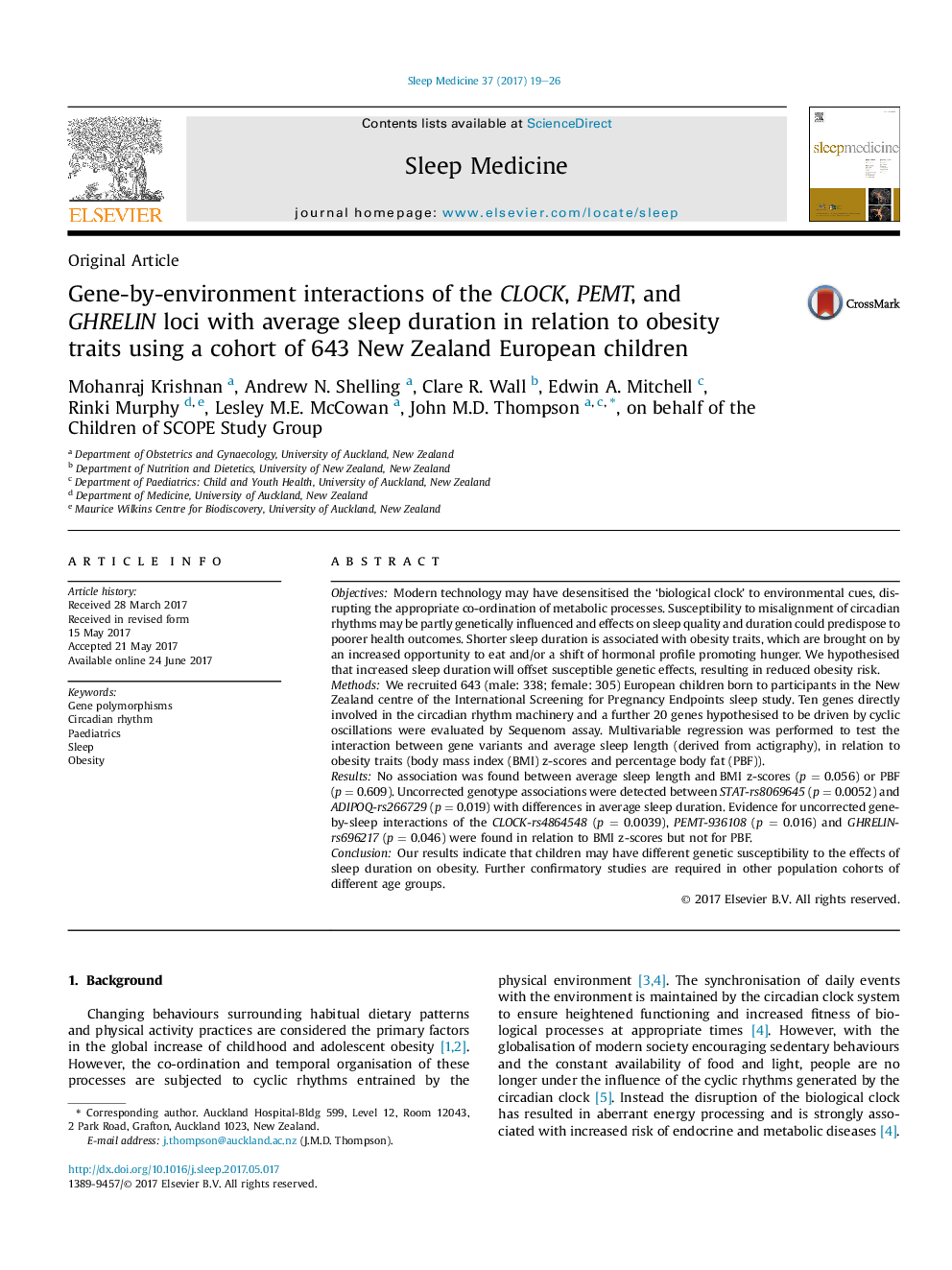| کد مقاله | کد نشریه | سال انتشار | مقاله انگلیسی | نسخه تمام متن |
|---|---|---|---|---|
| 5643856 | 1586472 | 2017 | 8 صفحه PDF | دانلود رایگان |

- Associations between sleep deprivation in childhood and metabolic complications are being consistently observed.
- Genetic variations in the biological clock may contribute to obesity brought upon by shorter sleep duration.
- Evidence for uncorrected gene-by-sleep interactions were found in relation to BMI z-scores in New Zealand European children.
- Sleep should be included in obesity research as part of the lifestyle package that has focused on diet and physical activity.
ObjectivesModern technology may have desensitised the 'biological clock' to environmental cues, disrupting the appropriate co-ordination of metabolic processes. Susceptibility to misalignment of circadian rhythms may be partly genetically influenced and effects on sleep quality and duration could predispose to poorer health outcomes. Shorter sleep duration is associated with obesity traits, which are brought on by an increased opportunity to eat and/or a shift of hormonal profile promoting hunger. We hypothesised that increased sleep duration will offset susceptible genetic effects, resulting in reduced obesity risk.MethodsWe recruited 643 (male: 338; female: 305) European children born to participants in the New Zealand centre of the International Screening for Pregnancy Endpoints sleep study. Ten genes directly involved in the circadian rhythm machinery and a further 20 genes hypothesised to be driven by cyclic oscillations were evaluated by Sequenom assay. Multivariable regression was performed to test the interaction between gene variants and average sleep length (derived from actigraphy), in relation to obesity traits (body mass index (BMI) z-scores and percentage body fat (PBF)).ResultsNo association was found between average sleep length and BMI z-scores (p = 0.056) or PBF (p = 0.609). Uncorrected genotype associations were detected between STAT-rs8069645 (p = 0.0052) and ADIPOQ-rs266729 (p = 0.019) with differences in average sleep duration. Evidence for uncorrected gene-by-sleep interactions of the CLOCK-rs4864548 (p = 0.0039), PEMT-936108 (p = 0.016) and GHRELIN-rs696217 (p = 0.046) were found in relation to BMI z-scores but not for PBF.ConclusionOur results indicate that children may have different genetic susceptibility to the effects of sleep duration on obesity. Further confirmatory studies are required in other population cohorts of different age groups.
Journal: Sleep Medicine - Volume 37, September 2017, Pages 19-26